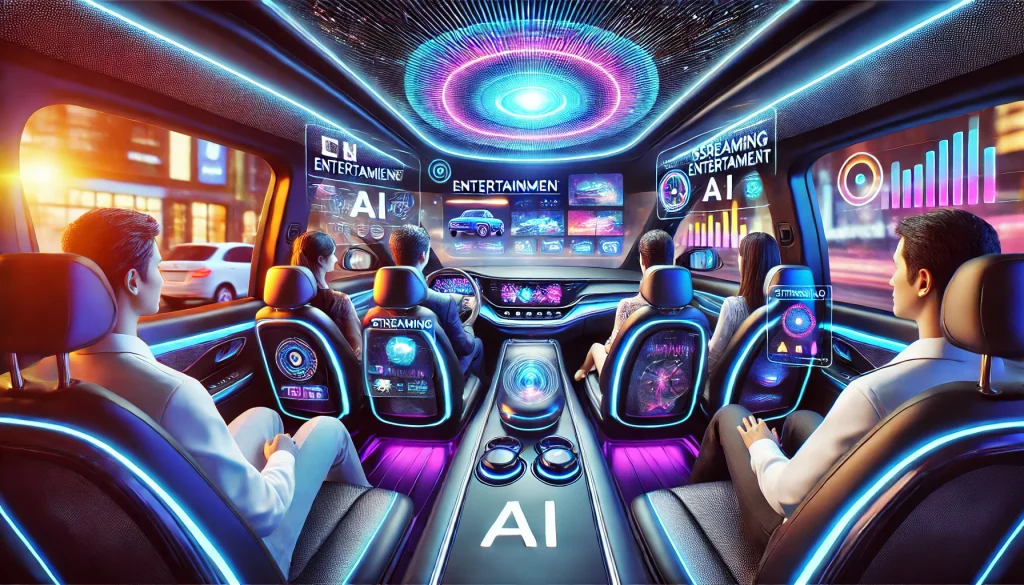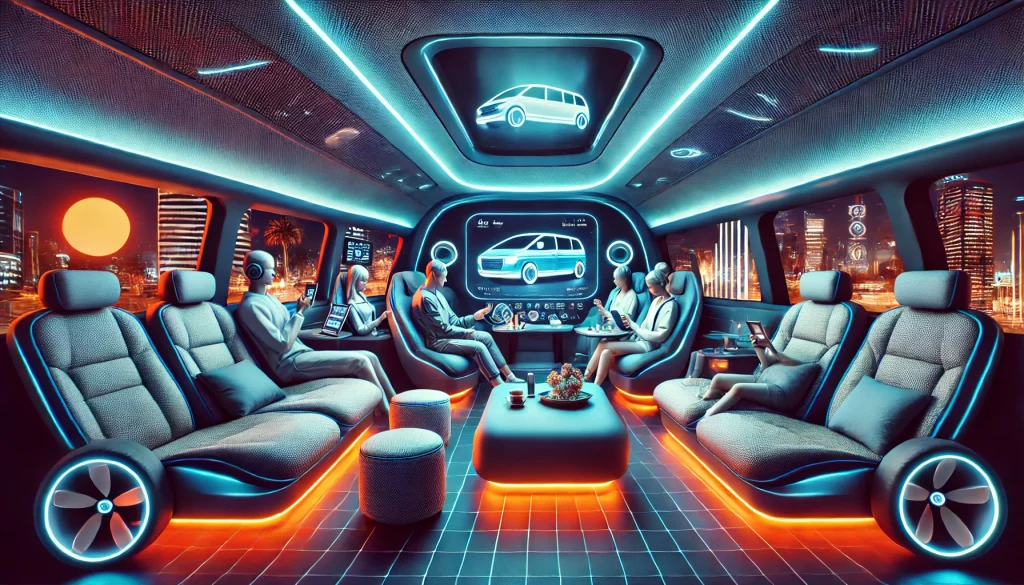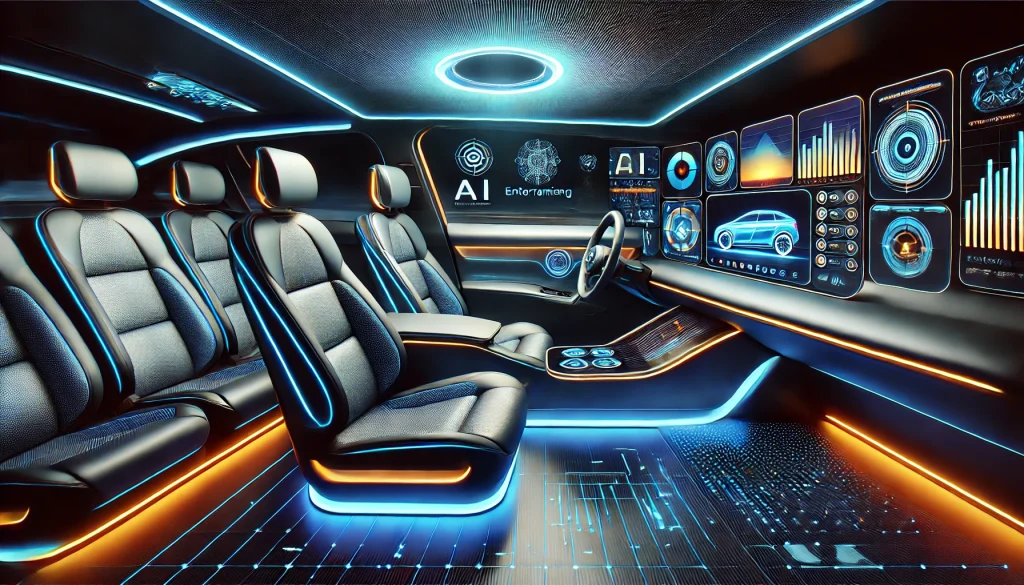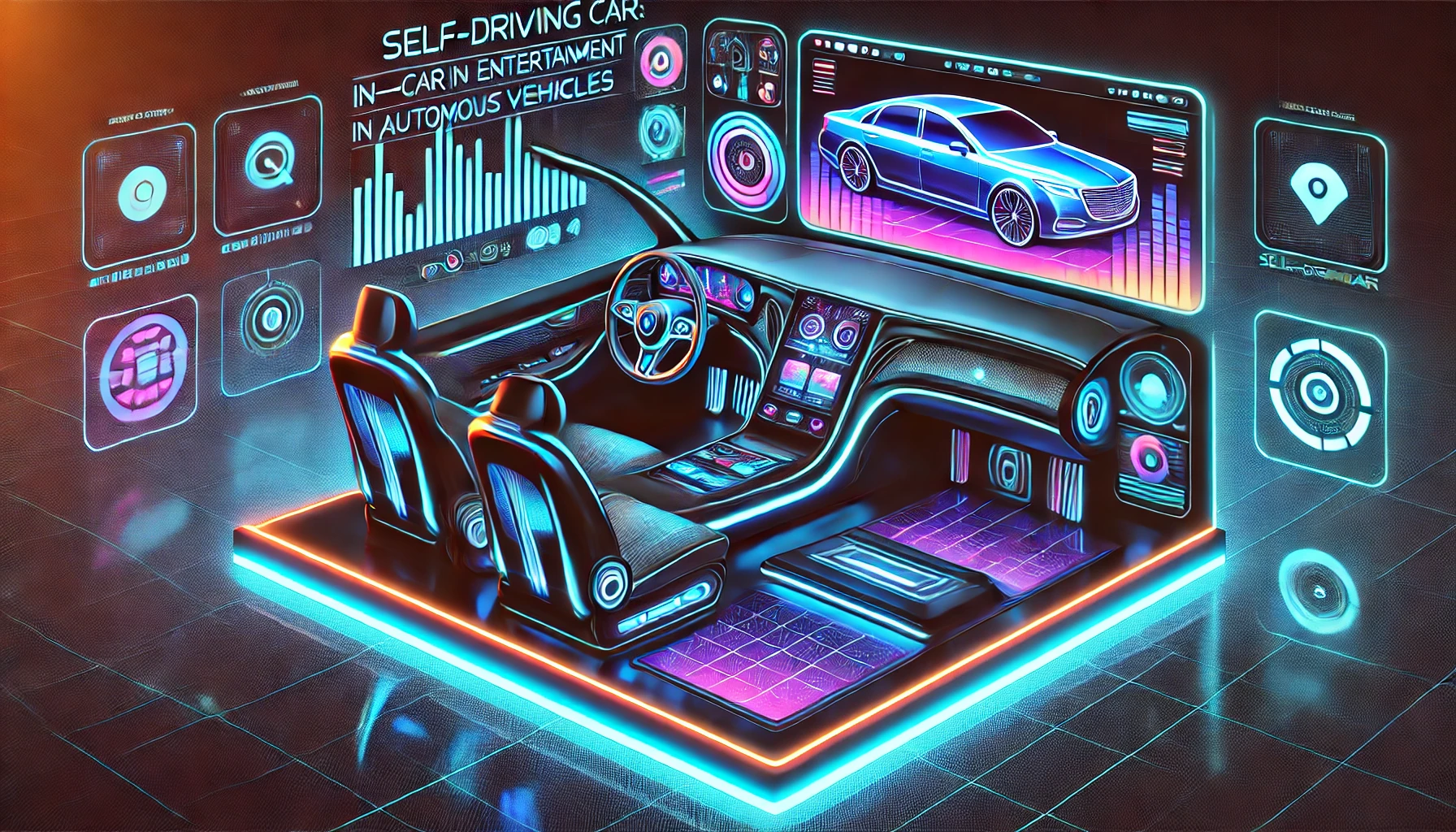Revolutionizing Travel: How Self-Driving Cars Are Transforming In-Car Entertainment

The rapid rise of self-driving cars marks a major shift in the world of transportation, combining the latest advances in AI technology and autonomous driving systems. One of the most exciting elements of this transformation is the evolution of in-car entertainment, which promises to change how we experience travel. No longer needing to focus on the road, passengers in driverless cars can fully engage in leisure activities, from streaming movies to immersive virtual reality experiences. But what does this mean for the future of in-car entertainment, and how will it impact our everyday lives?
What Happens to Entertainment in a Self-Driving World?

With the advent of autonomous vehicles, an intriguing question emerges: What happens to entertainment when cars drive themselves? For decades, cars have been primarily designed for safety, speed, and comfort. But as AI technology has advanced and vehicles like Google’s Waymo are becoming more common, designers are beginning to reimagine cars as spaces for entertainment and relaxation. Imagine having a mobile living room where passengers can watch movies, play games, or even attend virtual meetings—all while the car navigates itself to the destination.
The possibilities are endless, but the challenge lies in balancing entertainment with safety and efficiency. Companies are working hard to design systems that enhance the in-car experience without distracting from the essential role of ensuring a secure and smooth ride.
The Need to Know: How Self Driving Cars are Reshaping In-Car Entertainment

As we embrace AI cars and driverless technology, the need to rethink in-car entertainment is paramount. Entertainment systems are already a staple in modern cars, but these systems will become far more complex and integrated in autonomous vehicles. Entertainment features that are now limited to the backseat could soon become standard throughout the entire vehicle.
Leading companies like Waymo, Tesla, and others are actively developing advanced in-car entertainment systems that allow passengers to fully enjoy their commute. For example, screens built into windows could provide passengers with personalized news or entertainment feeds, and AI-based virtual assistants could enhance their experience by recommending content or controlling smart home devices remotely.
For those worried about losing control over their entertainment, the future holds even more promise. AI cars will allow passengers to interact with the system in new ways, such as voice-controlled features that let them access streaming services or gaming consoles. As the industry evolves, the potential for integrating augmented reality and virtual reality experiences into the car’s design opens up even more exciting avenues for in-car entertainment.
The Latest on Self Driving Cars: In-Car Entertainment in Autonomous Vehicles
The development of self-driving cars is rapidly evolving, with Waymo and Google’s autonomous driving projects leading the charge. These companies are exploring not only the safety and efficiency of autonomous driving but also how in-car entertainment can shape the passenger experience.
Incorporating state-of-the-art AI car systems, Waymo vehicles are equipped with an array of sensors and advanced algorithms that allow them to navigate without human intervention. This opens the door for fully immersive in-car experiences that were previously unimaginable. Some industry leaders predict that driverless taxis and ride-sharing services could be equipped with movie theatres, music studios, or even meditation rooms. The concept of “on-the-go entertainment” is being redefined in real time.
One recent development is the collaboration between Waymo and entertainment giants like Netflix, allowing passengers to watch exclusive content while commuting. In other parts of the world, especially in Asia, companies are working on integrating mobile VR systems into self-driving cars, offering passengers the chance to explore digital worlds during their journeys.
Incorporating AI further into the entertainment aspect of autonomous vehicles has also led to breakthroughs in personalized media experiences. For example, based on a user’s preferences, the AI car can recommend songs, shows, or even fitness routines to make the commute as enjoyable and productive as possible. The road to a future where cars offer not just transport but full entertainment ecosystems is clearly within reach.
Wrapping Up: The Future of In-Car Entertainment in Self-Driving Cars
As we look forward to the future, the in-car entertainment possibilities within self-driving cars are virtually endless. The journey itself becomes a part of the entertainment experience, transforming time spent commuting into time well spent. While the technology is still developing, we are already seeing glimpses of what lies ahead—from fully immersive VR experiences to personalized AI-driven content recommendations.
The question is no longer whether autonomous vehicles will change the way we travel, but rather how much they will change it. As AI continues to power self-driving cars, the concept of what a car can be is evolving. Soon, we will no longer think of cars as just a means to get from one place to another, but as spaces for relaxation, work, and most of all—entertainment.
FAQ
What entertainment options will self-driving cars offer?
Self-driving cars are set to revolutionize in-car entertainment by integrating advanced AI systems. These vehicles will offer personalized content recommendations, voice-controlled entertainment, and possibly even immersive VR or AR experiences for passengers, transforming commuting into a fully interactive experience.
Will autonomous vehicles change the way we use our time during travel?
Absolutely. AI cars will allow passengers to use their travel time for a variety of activities, including watching movies, working, playing games, or even attending virtual meetings. By removing the need for a human driver, these vehicles open up possibilities for productivity and leisure like never before.
Are there safety concerns with in-car entertainment in autonomous vehicles?
While self-driving cars are designed to minimize distractions and enhance safety, some concerns exist regarding how immersive entertainment systems might impact passenger awareness. However, developers are working on balancing the entertainment features with safety measures, ensuring that the system can handle both aspects without compromising one for the other.
Resources
- Forbes. The Future of Self-Driving Cars
- The Zebra. How Self-Driving Cars Work
- UCS USA. Self-Driving Cars 101
- Imagination Technologies. AI and Autonomous Vehicles
- Here. AI in Self-Driving Cars

